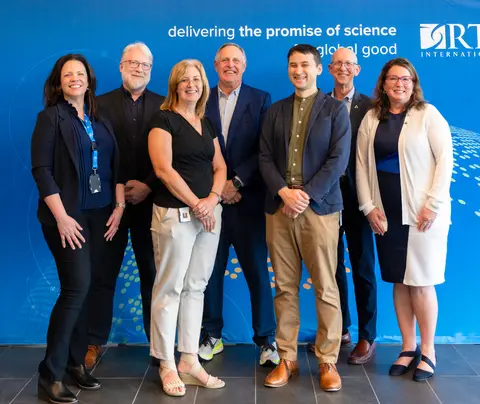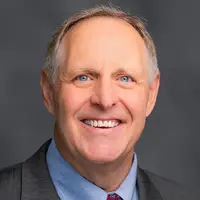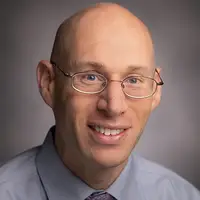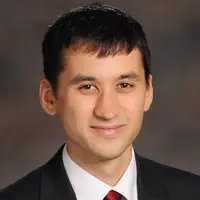RTI Fellows receive sponsorship to conduct high-impact research
RESEARCH TRIANGLE PARK, N.C. — Nonprofit research institute RTI International is proud to announce the appointments and promotions of seven scientists to the 2024 RTI Fellow Program. Each year, a small group of distinguished researchers are sponsored through the program to conduct high-impact studies, mentor the next generation of scientists and foster a culture of inclusivity and innovation.
“Our RTI Fellows bring exemplary research to the institute, holding us to a high standard of inclusive and innovative science,” said RTI President and CEO Tim J. Gabel. “They serve as a model for the rest of us to follow and we’re fortunate to have them as leaders.”
This year’s RTI Fellow awardees:
- Marcus Berzofsky, Dr.PH., Fellow: Dr. Berzofsky applies data modernization methods to design and analyze complex statistical surveys. He is the principal investigator on the NCS-X NIBRS Estimation project, providing national-, state- and sub-state-level estimates from the National Incident-Based Report System (NIBRS) — the nation’s administrative data source of crimes reported to the police. He has designed campus climate surveys for several universities to measure sexual assault rates and works on population-based studies assessing access to health care and health care status.
- Robert Chew, MS, Fellow: Mr. Chew uses his expertise in data science, machine learning/AI and computational social science to partner with domain experts on novel interdisciplinary research and tool development. Mr. Chew has successfully integrated data science into projects spanning health care, criminal justice, public health, survey research, international development and the environment. He was named a Data Fellow by the National Consortium for Data Science and is currently serving as an ASA/NSF/BLS Senior Data Science Research Fellow.
- Stephanie Earnshaw, Ph.D., Senior Fellow: Dr. Earnshaw’s research focus is in applying decision-analysis techniques to industry-related issues and health care problems. In addition to developing budget-impact and cost-effectiveness models to understand the value for money and affordability of health technologies, she has developed innovative mathematical models to determine pricing strategy, predict clinical outcomes, assess policy impact, allocate resources and cost care pathways. Therapeutic areas include cardiovascular disease, gastrointestinal disorders and vaccines. Dr. Earnshaw holds both a doctorate and a master’s degree in industrial engineering from NCSU.
- Jeri Ropero-Miller, Ph.D., Senior Fellow: Dr. Ropero-Miller’s expertise includes working with large surveys, forensic laboratory operations and capacity enhancements, assessment of criminal justice policy and practice, implementation of forensic databases, analytical technology evaluations, technology transitioning, technology evaluation and forensic certifications. Her work has been extensively published in the areas of clinical and forensic toxicology, including items for “Forensic Science International Synergy (c),” “Journal of Forensic Sciences” and “Journal of Analytical Toxicology (JAT).”
- Lissette M. Saavedra, Ph.D., Fellow: Dr. Saavedra has broad expertise in mental health services research and trauma-informed care. She has worked on evaluation of efficacy and effectiveness of clinical trials funded by the National Institute of Justice, National Institute on Drug Abuse, National Institute of Mental Health and National Institute on Alcohol Abuse and Alcoholism. Dr. Saavedra has expertise in trauma-informed care across specialty populations, including victims of crime, people who use drugs, veterans and people who experience homelessness. She has authored articles on the assessment and intervention of anxiety, depression and substance use, as well as prevention of suicide-related behaviors. She is also a language methodologist with over 20 years of experience translating surveys, interviews and protocols to the English language.
- Brian G. Southwell, Ph.D., Distinguished Fellow: Dr. Southwell uses quantitative and qualitative research to assess public understanding of science, health and wellbeing. He holds faculty appointments at Duke University, the University of Delaware and the University of North Carolina at Chapel Hill. Dr. Southwell regularly serves on appointed committees for the National Academies of Sciences, Engineering and Medicine, including a consensus study on misinformation about science and the Standing Committee for Advancing Science Communication. He was also recently named as a public engagement consultant to the Advisory Committee to the Director of the U.S. Centers for Disease Control and Prevention. Dr. Southwell has both a doctorate and master’s degree in communication from the University of Pennsylvania.
- Michael Willoughby, Ph.D., Senior Fellow: Dr. Willoughby is involved in the development and psychometric evaluation of performance-based measures of executive function. His work is focused on developmental causes, course and consequences of individual differences in executive function, with a specific interest in how executive function skills support children’s transition to elementary school readiness and their risk for disruptive behavior disorders.
Awardees will be honored at an induction ceremony in September on RTI’s main campus.

RTI International Media Relations:
As an independent, scientific research institute with a mission to improve the human condition, RTI International is engaged by clients and partners to conduct evidence-based research and project implementation. We share our work in line with journalistic and scientific standards and maintain a record in RTI’s Newsroom.
RTI International is an independent scientific research institute dedicated to improving the human condition. Our vision is to address the world's most critical problems with technical and science-based solutions in pursuit of a better future. Clients rely on us to answer questions that demand an objective and multidisciplinary approach—one that integrates expertise across social, statistical, data, and laboratory sciences, engineering, and other technical disciplines to solve the world’s most challenging problems.
For more information, visit www.rti.org.







